
How Long Does Teeth Whitening Last and How to Maintain It? Tips for Lasting Results
- How Long Does Teeth Whitening Last?
- Factors Affecting Teeth Whitening Longevity
- How to Maintain Whitened Teeth
- Foods to Avoid After Whitening
- Teeth Whitening Touch-Ups
- Natural Ways to Extend Teeth Whitening Results
- Common Mistakes to Avoid When Maintaining Whitening
- Professional Whitening vs. At-Home Whitening
How Long Does Teeth Whitening Last?
Teeth whitening results can last anywhere from a few months to over a year, depending on several factors such as the type of whitening treatment used, your diet, and oral care habits. Typically, professional whitening treatments like those done at your dentist's office last between 12 to 24 months. However, at-home whitening products may last only a few months.
The longevity of your teeth whitening results is ultimately influenced by your lifestyle choices and how well you take care of your teeth after the procedure. While whitening your teeth can give you an immediate boost in confidence, maintaining the results requires consistent oral hygiene and avoiding certain foods and drinks that can stain your teeth.
Factors Affecting Teeth Whitening Longevity
Several factors influence how long your teeth whitening lasts. Some of the key factors include:
1. Type of Whitening Treatment
Professional whitening treatments generally last longer than over-the-counter products. Dental office treatments use stronger whitening agents that can achieve more dramatic results, which also tend to last longer. At-home treatments, though more convenient, may not have the same lasting power.
2. Diet and Lifestyle Choices
The foods and drinks you consume can have a significant impact on the longevity of your whitening results. Coffee, tea, red wine, and foods with strong pigments like berries can cause your teeth to yellow faster. Additionally, smoking or using tobacco products can quickly stain your teeth, diminishing the whiteness achieved from a treatment.
3. Oral Hygiene Habits
Consistent oral care plays a huge role in maintaining teeth whitening results. Brushing your teeth at least twice a day, flossing regularly, and using whitening toothpaste can help keep stains at bay and extend the duration of your bright smile.
How to Maintain Whitened Teeth
After whitening, it’s important to implement a few key habits to preserve the results for as long as possible. Here are some tips for maintaining your whitened teeth:
1. Brush with Whitening Toothpaste
Using a toothpaste formulated for whitening can help you maintain the brightness of your teeth. These toothpastes contain mild abrasives that gently remove surface stains without damaging the enamel. Look for options that are approved by the American Dental Association (ADA) for best results.
2. Avoid Staining Foods and Drinks
As mentioned earlier, certain foods and drinks can quickly reverse the effects of your whitening treatment. To extend the results, try to limit your consumption of coffee, tea, red wine, cola, and brightly colored foods. If you do consume them, rinse your mouth with water afterward to reduce the chance of staining.
3. Maintain Regular Dental Check-Ups
Regular visits to your dentist not only ensure overall oral health but also help in maintaining the results of your whitening. Professional cleanings can remove plaque and surface stains, keeping your smile bright.
4. Use a Straw for Dark Drinks
When drinking beverages that can stain your teeth, such as coffee or soda, using a straw can help minimize contact with your teeth. This reduces the risk of stains and helps preserve the whiteness of your smile.
Foods to Avoid After Whitening
After whitening your teeth, some foods are better avoided to help maintain the whiteness of your smile. These foods are known for their staining properties and can diminish the results of your teeth whitening treatment:
1. Dark Berries
Berries like blueberries, blackberries, and cherries contain deep pigments that can easily stain teeth. If you consume them, make sure to brush your teeth afterward or rinse with water to prevent staining.
2. Tomato Sauce
Tomato sauce is another culprit that can stain teeth due to its deep red color. If you can't avoid it, be sure to brush your teeth soon after eating to remove any residue.
3. Beverages Like Coffee, Tea, and Red Wine
These drinks are notorious for their ability to stain teeth. Limiting or avoiding them altogether will help keep your teeth white. If you must have them, drinking them through a straw can help reduce their contact with your teeth.
Teeth Whitening Touch-Ups
While good oral hygiene and avoiding staining foods can help maintain your whitening results, you may need touch-ups over time to keep your smile bright. Many people find that they need to whiten their teeth again every 6 to 12 months, especially if they consume foods and drinks that can stain.
At-home whitening kits are a popular option for touch-ups and can help you maintain your results in between professional treatments. Consult your dentist to see which option is best for you.
Natural Ways to Extend Teeth Whitening Results
There are also several natural ways to help maintain your bright smile. Here are some options:
1. Oil Pulling
Oil pulling with coconut oil is an ancient practice that can help remove surface stains. Swishing coconut oil around in your mouth for 10–15 minutes can help keep your teeth clean and may improve the longevity of your whitening results.
2. Baking Soda
Baking soda is a gentle abrasive that can remove surface stains without damaging enamel. Using it once or twice a week in place of toothpaste can help maintain a bright smile.
3. Apple Cider Vinegar
Apple cider vinegar can be used as a natural whitener, but it should be used sparingly. Its acidity can erode enamel if used too often, so make sure to dilute it with water before swishing it around in your mouth.
Common Mistakes to Avoid When Maintaining Whitening
While there are plenty of ways to maintain your whitening results, there are also several mistakes people often make that can shorten the life of their treatment. Avoid the following:
1. Brushing Too Hard
Brushing your teeth too aggressively can wear down enamel and cause sensitivity. Use gentle circular motions with a soft-bristled toothbrush to protect your enamel.
2. Overusing Whitening Products
Overusing whitening products can lead to enamel damage and increased tooth sensitivity. Follow the instructions carefully and don’t exceed recommended use.
Professional Whitening vs. At-Home Whitening
Professional whitening treatments tend to offer longer-lasting results compared to at-home options. While at-home kits are more convenient and affordable, professional treatments are tailored to your needs and use stronger whitening agents.
For the best results, consider consulting a dentist to determine the right whitening option for you.

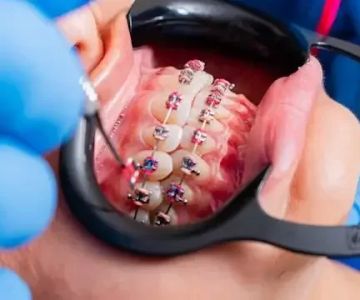
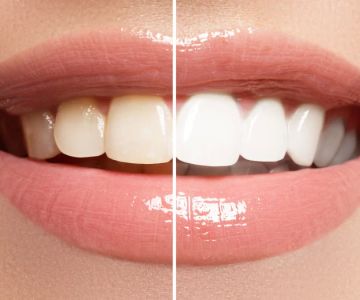
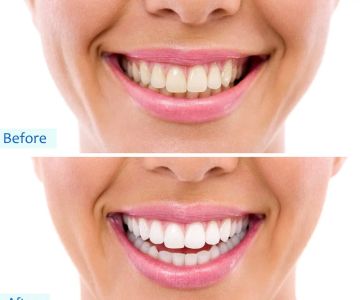
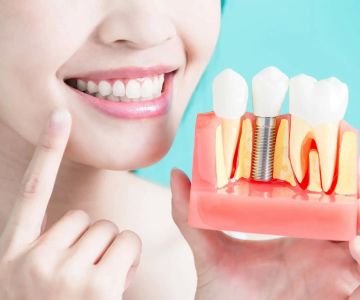
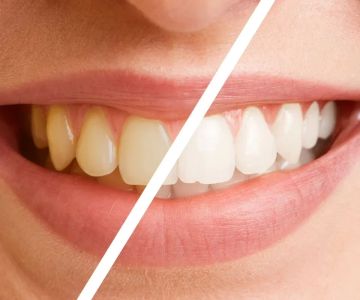

 Westgate Dental Arts
Westgate Dental Arts Coventry Family Dental
Coventry Family Dental Familia Dental
Familia Dental Dr. Daniel S. Fife, DDS
Dr. Daniel S. Fife, DDS Dentistry At Suburban Square: Michael I. Wollock, DMD
Dentistry At Suburban Square: Michael I. Wollock, DMD Comfort Care Dental
Comfort Care Dental The Importance of Oral Health Education During Pregnancy for a Healthy Pregnancy
The Importance of Oral Health Education During Pregnancy for a Healthy Pregnancy Why Skipping Dental Checkups Can Lead to Bigger Oral Health Problems
Why Skipping Dental Checkups Can Lead to Bigger Oral Health Problems Advantages of Porcelain Dental Restorations
Advantages of Porcelain Dental Restorations Best Tips for Brushing Your Teeth Properly for Healthy Gums: Essential Techniques for Oral Health
Best Tips for Brushing Your Teeth Properly for Healthy Gums: Essential Techniques for Oral Health How Can Diabetes Cause Tooth and Gum Problems? Preventing and Managing Oral Health Issues
How Can Diabetes Cause Tooth and Gum Problems? Preventing and Managing Oral Health Issues Healthy Habits for Promoting Good Oral Health and Hygiene: Tips for a Healthy Smile
Healthy Habits for Promoting Good Oral Health and Hygiene: Tips for a Healthy Smile